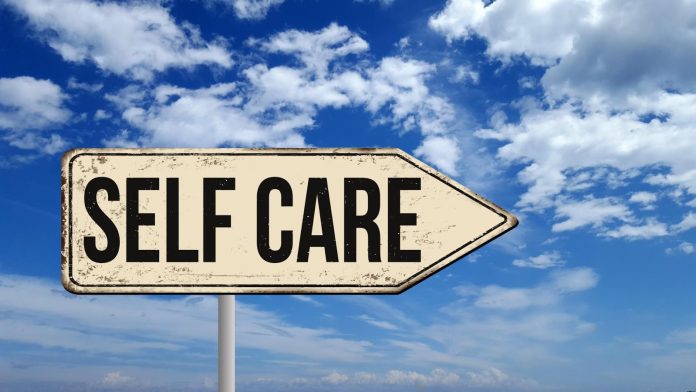Do you find that you’re tired, but that you don’t have the time to stop and unwind? Are you continually working and running around running errands? It may be time to put the breaks on, hit pause, and practice some essential self care.
Self care may sound a little wishy-washy, but it is essential for your mental health. And, because your physical health is so closely linked to your mental health, it is also vital for your physical health too.
Finding the time to practice self care activities can be a challenge, so what can you do? And how can you find the time to take care of yourself?
In this article, we’ll look at the importance of self care and what you can do for yourself. After all, you’re worth looking after.
What is Self Care?
Put simply, self care is the intentional practice of taking care of your own wellbeing by making healthy decisions and good daily habits and routines.
Self care is important. Without practicing self care, you may burn out or struggle with exhaustion. Your self-esteem and confidence can be affected if you’re not taking the best care of your self, and your stress and anxiety levels may be quite high.
So, what can you do to take better care of yourself?
Get Yourself Organized
If you’re rushing around all over the place, and you always feel stressed, take a step back for a moment and look for ways that you can help yourself to become more organized.
Are you prioritizing the most important tasks, or are you trying to do everything all at once?
Spend some time creating a plan of how you’ll organize your life. Start with the tasks that you really need to do, and then work through the rest. If something is less important and it doesn’t get done, you need to learn to not beat yourself up over this fact.
Take a Digital Detox
Social media can connect us to friends and family who we may not see every day; however, there are many negative aspects to spending too much time online.
Constant notifications can have you checking your phone continually. This can cause you to become distracted.
Scrolling through newsfeeds will provide you with a hit of dopamine. Spending a lot of time online can send your dopamine levels into an unnatural high. This can lead to withdrawal symptoms when you’re not online.
In addition to this, seeing edited versions of other people’s lives on social media can make us feel bad about our own lives, as though we’re not achieving as much as we should, or that we’re missing out somehow on life.
Cutting back or completely stopping using social media can be very good for your mental health.
Get Some Exercise
When we exercise, our bodies create endorphins. This feel-good hormone is great for reducing stress.
If you’re not someone that exercises often, you may want to start with some gentle exercises. Try walking, running, or swimming a short distance. Keep repeating this and build up the amount of exercise that you do on each occasion.
Get a Better Sleep Routine
As an adult, you should be getting between seven and nine hours of sleep each night. If you’re not getting enough sleep, you may find that your stress levels will start to rise. If you’re often not sleeping, then your stress levels may be constantly high.
If you’re struggling to get to sleep on a night, change your routine. Avoid using smartphones, tablets, and laptops in the hour before you go to bed. This is because screens emit blue light, which can block your melatonin production and prevent you from falling asleep easily.
Try taking a bath before bed. If possible, use lavender products in your bath, or sprinkle some lavender essential oil on your pillow. This will help to relax your mind, allowing you to drop off easier.
Take a Break
Taking breaks is important. If you don’t take a break from what you’re doing, you may find that your stress levels never drop. Avoid working through your lunch break.
Take the time to go for a walk or read a book, and you’ll feel more refreshed and able to work when you return.
Similarly, you need to have days off where you’re not thinking about work. When you take the day off, turn off all work-related notifications, and focus on your own self care.
Practice Gratitude
It can be very easy to get sucked into negative thoughts when you’re feeling stressed or anxious. When you’re perpetually stressed, it can be very easy for these negative thoughts to take over your life and consume you.
One way of countering these negative thoughts is to practice gratitude. This means looking for the good in life and thinking about what you should be grateful for.
Write down a list of things that you should be grateful for every day, and you’ll notice that you will soon naturally change the way you think.
Drink Less
If you’re someone that likes a drink to help you unwind when you’re stressed, the odd glass of wine can probably help you. If you turn to alcohol to help you out often, then this could be a problem.
America’s Rehab Campuses can help you to overcome alcohol addiction and other co-occurring disorders.
Meditate
Meditation is a great way of helping you to relax and to focus.
There are several different types of meditation, from mindfulness to transcendental meditation. All types of meditation will require some practice, though, so if you try it and it doesn’t seem to do much for you, keep on trying.
Remember, You’re Worth It
When it comes to self care, it can take time to find out which practices work best for you. It can take some time to get the right balance.
Don’t be afraid to try new things to take care of yourself and be patient; it can take time to see the results in your life.
For more helpful articles, please see the rest of the site.
















